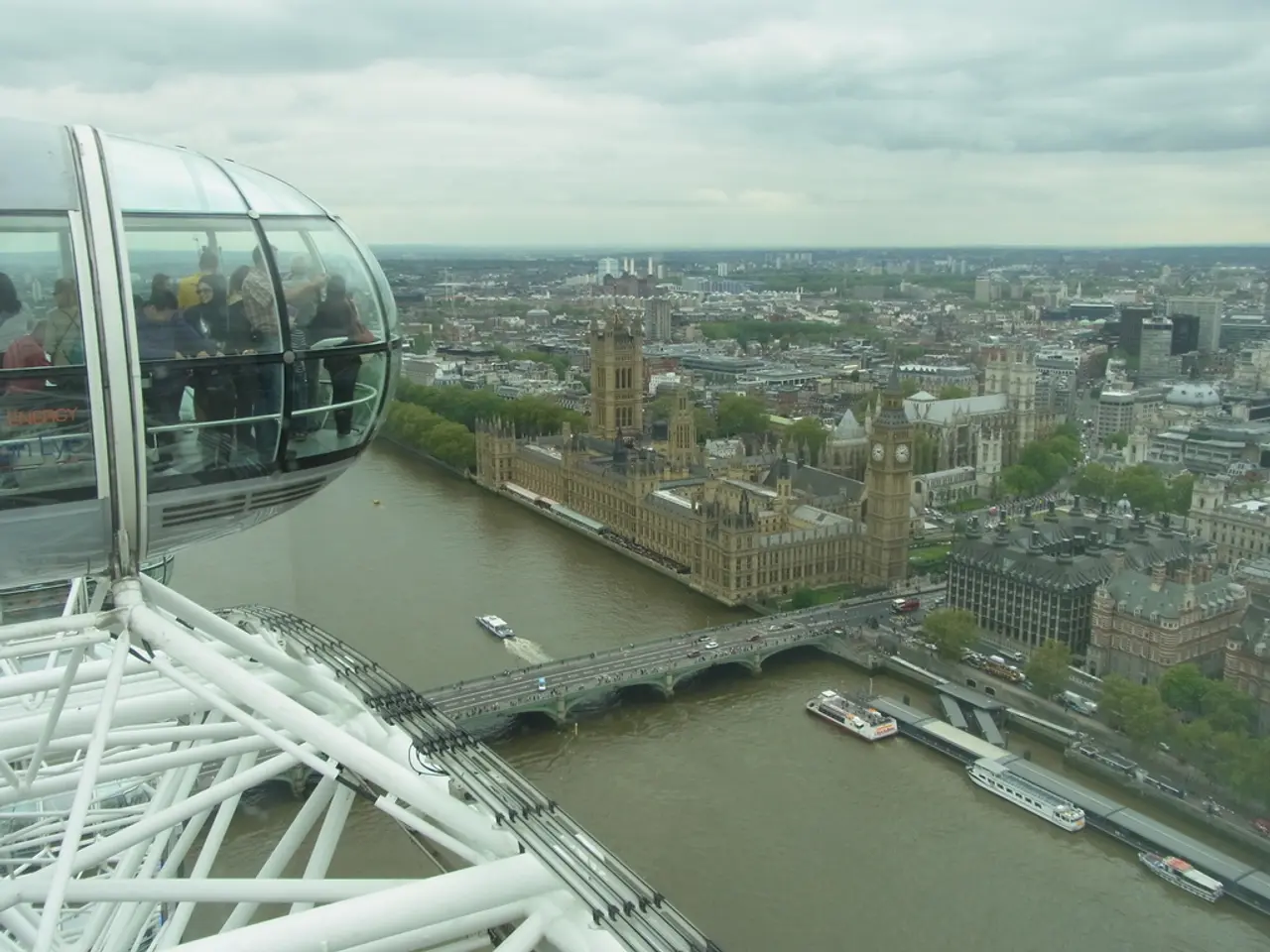Renters in private homes deal with a postal code-based inequity in handling substandard living conditions, as a result of insufficient housing inspectors enforcing regulations
The New Economics Foundation has released a report titled "Detailing the database: how the private rented sector database can support enforcement and drive up standards," which will be available from 00.01 on Wednesday, 30 July 2025, at this link. The report proposes a government-backed landlord registry as a solution to enhance the private rented sector (PRS) and address the postcode lottery in enforcement.
The report outlines various fee structures for enforcing landlord compliance, including per-property, per-landlord, and hybrid models. It uses 2022-23 local authority data to assess potential enforcement gains, although it is acknowledged that this data may overstate the enforcement capacity.
The proposed database is seen as a unique opportunity by all tenants, landlords, and local authority representatives to improve the PRS. However, a lack of enforcement officers often results in inadequate enforcement of housing standards, a problem the report aims to address.
Nottingham emerges as the local authority with the best enforcement capacity, with 267 properties per enforcement officer. In contrast, Huntingdonshire has almost 25,000 properties per officer, making it one of the most stretched areas for PRS enforcement.
The report models scenarios to estimate total revenue, the number of enforcement officers it could fund, and the resulting increase in capacity. A small annual registration fee of £46 could ensure no enforcement officer oversees more than 1,000 properties, potentially trebling staffing for PRS enforcement.
Qualitative data was collected via 18 interviews and two focus groups with tenants, landlords, local and combined authority representatives, and other stakeholders. Over half of landlords believe the PRS needs more regulation, and all tenants and representatives believe the database provides an opportunity for much-needed regulation.
Christian Jaccarini, senior economist at the New Economics Foundation, supports the landlord registry as a means to make decent housing a right and to address the current disparities in enforcement across the country. The financial impact on landlords would be minimal, with the fee reducing landlord yields by less than 0.03 percentage points, even in areas with lower rents.
The report also models how a new landlord registration portal could fund stronger enforcement in the PRS, based on 4.7 million PRS households, 2.3 million landlords, and an assumption that 65% of landlords will sign up to the landlord registry.
The New Economics Foundation is an independent charitable think tank that supports this initiative as a crucial step towards improving the PRS and ensuring decent housing for all.
Read also:
- Understanding Hemorrhagic Gastroenteritis: Key Facts
- Stopping Osteoporosis Treatment: Timeline Considerations
- Trump's Policies: Tariffs, AI, Surveillance, and Possible Martial Law
- Expanded Community Health Involvement by CK Birla Hospitals, Jaipur, Maintained Through Consistent Outreach Programs Across Rajasthan




